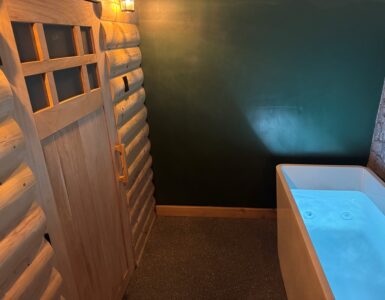Everyone should have one form or another of a homeowner’s policy:
If you own or rent a home, condo, mobile home or town home, you need
insurance.
There are six main parts in a typical homeowner’s policy:
A) Dwelling: Homeowners insurance should include enough
dwelling coverage to pay for the replacement of your home when and if it is
damaged in a covered peril
B) Other Structures: Detached garages, fences or sheds are
covered under a standard home insurance policy
C) Contents/Personal Property: Typically provides coverage for
the contents of your home including furniture, electronics, clothing and
other personal belongings.
D) Loss of Use: If your home is damaged in a covered peril, ‘Loss
of Use’ coverage pays for alternative accommodations and living expenses
while you are unable to live in your home.
E) Personal Liability Protection: Covers your financial loss if you
are sued and found legally responsible for injuries or damages to someone
else.
F) Medical Payments: “MedPay” Pays medical bills for people hurt
on your property or hurt by your pets.
Actual Cash Value Vs. Replacement Cost
One important factor to consider when shopping for your homeowners
insurance policy is “actual cash value” vs. “replacement cost” coverage.
While it may not affect your short-term premiums, it may make a large
difference in your claim submission.
Actual cash-value coverage, as the name implies, will reimburse you for the
cost of the property at the time of the claim, minus your deductible. It’s
important to account for depreciation when considering this coverage
option. For example, if you lose an audio system that was purchased five
years before the claim, you will be reimbursed for the current value of the
system. This may result in a lower claim payment than you expect.
Replacement cost coverage, on the other hand, will reimburse the full value
of the new audio system after you purchase the new system and submit
your receipts. While the up-front cost is greater, you are more likely to
receive accurate compensation for your possessions.
Typical Exclusions
There are exclusions in all homeowner’s policies. Read your policy
carefully. The typical exclusions are:
· Earthquake (can be added by endorsement)
· Flood (can be added by endorsement)
· Land movement (can be added by endorsement)
· In-home Businesses (can be added by endorsement)
· Farming (can be added by endorsement)
· Mold (can be added by endorsement)
· War
· Normal Wear and Tear
Living near the Wasatch Fault, it is a good idea to have earthquake
coverage. The experts tell us that an earthquake is not a matter of “if… but
when”.
A flood can happen any year. 2012 was very dry, but 2011 we had several
issues. Get your policy early, because insurance companies have waiting
periods for flood insurance.
Businesses in the home are excluded unless you contact your agent to add
them in your policy. Many people have businesses in the home including:
· Music lessons
· Hair stylists / barbers
· Day care and pre-school
· Realtors, CPA’s
Tips to help you reduce your costs.
Some discounts you can receive to lower your rates
· Multi policy (auto or life insurance with same company)
· Smoke detectors
· Security devices (burglar alarm)
· Dead bolts on doors
· New home credits if less than 20 years old
· Updates on roof, electrical, plumbing and heating & air
conditioning
· Raise your deductible
· Mature owners’ discounts for age 55+
· Association discounts (such as Chambers’ of Commerce)
Your insurance policy is not a maintenance policy. Do not file a claim that
is lower than your deductible.
For more information, please visit our webpage at
www.InsuranceCenterUT.com
or call us at 877-422-2626.














Add comment